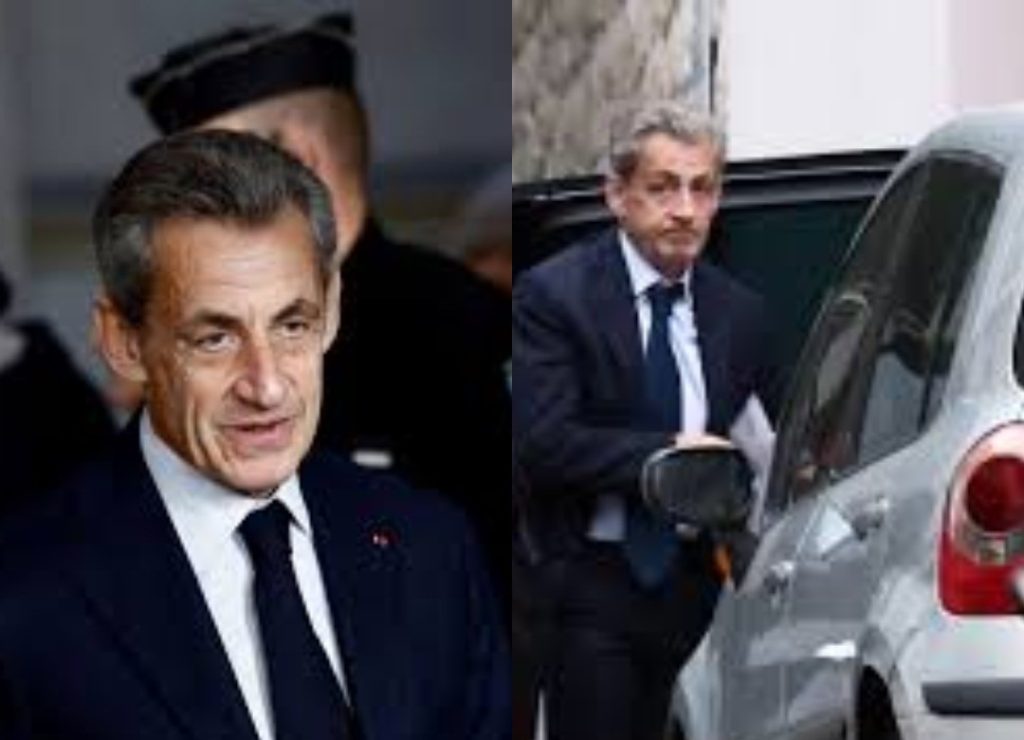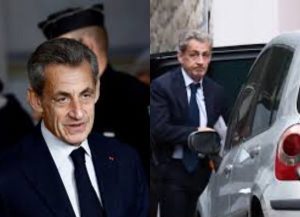Former French President Nicolas Sarkozy Imprisoned Over Libyan Campaign Financing Scandal
3 min read
Sarkozy Begins Prison Term in Paris
Former French President Nicolas Sarkozy has made history as the first ex-head of state in modern French history to go to prison. The 70-year-old began serving his five-year sentence at La Santé prison in Paris after being convicted of conspiring to illegally finance his 2007 presidential campaign with funds allegedly provided by late Libyan dictator .
Sarkozy’s imprisonment marks a dramatic fall for a leader once seen as one of France’s most influential political figures. Not since the imprisonment of World War II collaborationist leader Philippe Pétain in 1945 has a former French leader been jailed.
Tight Security and Isolation Measures
Sarkozy arrived at the 19th-century La Santé prison at 09:40 local time (07:40 GMT) under tight security. He will be held in the prison’s isolation wing for his own protection, separated from other inmates that include drug traffickers and convicted terrorists.
His cell measures about nine square meters (95 sq ft) and includes a toilet, shower, desk, and small television. He will spend one hour daily exercising alone in the prison yard. Despite the circumstances, Sarkozy reportedly told his lawyers he did not wish to receive any special treatment.
Public and Family Support
More than 100 supporters gathered outside Sarkozy’s villa in Paris’s upscale 16th arrondissement, responding to a call from his son Louis for solidarity. His other son, Pierre, urged supporters to express “love nothing else, please.”
In a post on X (formerly Twitter), Sarkozy wrote before entering prison:
“I have no doubt. Truth will prevail. But how crushing the price will have been. Do not feel sorry for me because my wife and children are by my side… but this morning I feel deep sorrow for a France humiliated by a will for revenge.”
Political and Official Reactions
French President Emmanuel Macron received Sarkozy at the Élysée Palace late last week, describing the meeting as “normal and human.” Justice Minister Gérald Darmanin also expressed sympathy, saying he plans to visit the former president “to ensure his safety and the proper functioning of the prison.”
Omega Tv UK celebrates ONE YEAR ANNIVERSARY, we wish to thank all our viewers for helping us reach this milestone.
Happy 1st anniversary to Omega TV UK!.
“I cannot be insensitive to a man’s distress,” Darmanin stated.
The Libya Funding Case
The long-running case centers on allegations that Sarkozy’s 2007 presidential campaign received millions of euros in cash from ’s regime. While Sarkozy was cleared of personally receiving money, he was convicted of criminal association with close aides Brice Hortefeux and Claude Guéant, who reportedly held secret talks with Gaddafi’s intelligence officials in 2005.
The meetings were allegedly facilitated by Franco-Lebanese middleman Ziad Takieddine, who was found dead in Lebanon shortly before Sarkozy’s sentencing.
Sarkozy’s Continued Denial and Appeal

Sarkozy maintains his innocence and insists the allegations are politically motivated. “I’m not afraid of prison,” he told La Tribune in a recent interview. “I’ll keep my head held high, including at the prison gates.”
He has filed an appeal against his conviction, which means he remains legally presumed innocent. Nonetheless, the court ordered his immediate incarceration due to the “exceptional seriousness” of the offenses.
Before entering prison, Sarkozy said he would take two books with him –The Life of Jesus and The Count of Monte Cristo, the story of a man wrongfully imprisoned who later seeks justice.
A Symbolic Moment for French Justice
Sarkozy’s imprisonment has sent shockwaves through French politics, symbolizing a rare moment of accountability for political elites. The case, which has unfolded over more than a decade, underscores growing scrutiny of corruption and transparency in French political life.
For Sarkozy, who once commanded both admiration and controversy as France’s reform-minded leader, this moment marks the lowest point in his post-presidential career — and a defining chapter in France’s modern political history.






